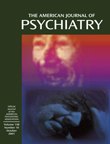Richard Chessick, a psychoanalyst with a Ph.D. in philosophy in addition to an M.D., is a gifted and rather prolific writer and editor. He has written books on such subjects as psychotherapy of the borderline patient, Freud and psychotherapy, how psychotherapy heals, why psychotherapists fail, Nietzsche, self psychology and narcissism, ideas in psychotherapy, listening in psychotherapy, what constitutes the patient in psychotherapy, a dictionary of dynamic concepts, and emotional illness and creativity.
The present book, Psychoanalytic Clinical Practice, is a selection of 16 of his papers, written over a period of several decades: “a summing up of my forty-five years of clinical and teaching experience.” Such books, even if predominantly thoughtful and clearly written, as this one is, are not entirely easy to read, or to review. Much in the book is clearly worth the attention of any thoughtful psychiatrist, psychoanalyst, or other psychotherapist, but not all readers will enjoy or want to read all of it; there is healthy variety, which makes simple summary inadequate. Like other readers, I will hear the Etchegoyen quotation with which Chessick begins the book as something of a useful warning:
We have to accept perforce the beautiful complexity of the analytic situation and that we can never be sure of anything; we must remain receptive to the material, always attentive to the changes that can occur. The analytic process is very subtle, and we are not going to simplify it with a position taken at the outset.
Chessick is most interested in, and useful about, the psychological and psychodynamic center of biopsychosocial psychiatry. Neither sociocultural psychiatry nor biological psychiatry is much in evidence, nor is integrative biopsychosocial psychiatry. To select a focus within a larger, complex biopsychosocial field is, after all, rather parallel to much biological psychiatric writing nowadays, which usually leaves out major real psychiatric areas in order to focus on a few relatively “hard” or quantifiable biological variables. Such specialization of research focus—blinkered as much of it is—is probably inevitable in current psychiatric writing. This requires work by readers, whether the focus is biological or psychodynamic. Is that a major flaw? I do not think so—unless the reader herself or himself forgets that in the 21st century we all need to integrate any detailed study of one or another part of psychiatry into biopsychosocial understanding of whole human beings.
Chessick studies psychotherapy with a somewhat philosophical and occasionally poetic bent, quoting, among others, Rilke, Yeats, Nietzsche, and Kierkegaard. These names all seem to me attractive and relevant in context, as did Chessick’s focus on Ezra Pound in his book on creativity
(1). Chessick also manages to provide good data, pointed clinical examples, and self-revelatory vignettes, while retaining a healthy skepticism about our usual wish to overgeneralize:
The hardest part…is to be willing to keep discontinuous and conflicting models in one’s mind, which offends the natural and very dangerous human tendency for a neat, consistent and holistic theoretical explanation of all material, even if it is wrong.
After a useful prefatory essay labeled “What Is Psychoanalysis?” (well worth reading on its own), there are chapters titled “Psychotherapeutic Interaction,” “Postmodern Psychoanalysis or Wild Analysis?” “The Two-Woman Phenomenon Revisited,” “Externalization and Existential Anguish in the Borderline Patient,” and “Psychoanalytic Treatment of the Borderline Patient” as well as chapters on what brings about change, adult eating disorders, and ulcerative colitis. One chapter is an inventive, risky, and to me not wholly successful dramatization (which has been staged) of a guilt-and-sex-laden psychiatric problem: “In the Clutches of the Devil.” A chapter on nothingness and meaninglessness is followed by a useful report of “A Failure in Psychoanalytic Psychotherapy of a Schizophrenic Patient.” These are followed by chapters on impasse and failure in treatment; the inadequacy of several major psychiatric acronyms, labels, and, implicitly, DSM-IV (“OCD, OCPD: Acronyms Do Not Make a Disease”); and contingency and unformulated countertransference. There is a chapter titled “Self-Analysis: A Fool for a Patient?” and another on Freud and archaic sadism.
Chessick’s prose is clear, his energy as a writer formidable. Most psychiatrists would be usefully challenged and stimulated by browsing in, reading an essay or two in, or reading all of this thoughtful and accessible collection of essays by a clear philosophical psychoanalyst.

